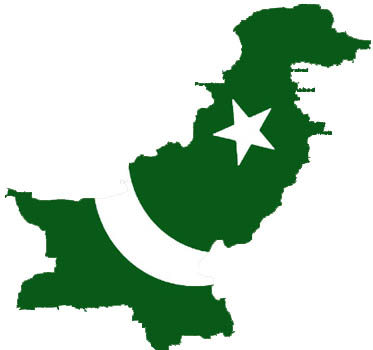Pakistan pays heavily in international fight against terrorism
 Islamabad - Pakistan has faced direct and indirect losses to the tune of 34.52 billion dollars in its fight against Islamist militants since 2001 when it joined the international alliance against terrorism, the latest government data revealed.
Islamabad - Pakistan has faced direct and indirect losses to the tune of 34.52 billion dollars in its fight against Islamist militants since 2001 when it joined the international alliance against terrorism, the latest government data revealed.
The financial losses, which have impacted all sectors of the economy, were expected to hit 8.46 billion dollars during the current financial year, which ends June 30, according to a document from Pakistan's Finance Ministry obtained by Deutsche Presse-Agentur dpa.
"The war on terror negatively affected Pakistani exports, prevented the inflows of foreign investment, affected the pace of a privatization programme, slowed overall economic activities, reduced import demand and tax collection, and caused expenditure overruns," the report said.
Thousands of jobs have been lost, both civilian and military infrastructure has been damaged in the conflict and Pakistan's domestic tourism industry has suffered, it added.
"Pakistan continued to pay a heavy price in terms of both economic and security concerns," Ashfaque Hassan Khan, special secretary to the Finance Ministry, told dpa. "A large portion of its resources, both men and material, have been consumed by this war for the last several years."
He said the economy initially suffered losses of 2.67 billion dollars in the financial year 2001-02, an amount that rose to 6.26 billion dollars in the past financial year and were projected to amount to 8.46 billion dollars this year.
Pakistan has seen a constant rise in its Islamist militancy and terrorist attacks since 2001 when thousands of al-Qaeda and Taliban fighters sought refuge in its ungoverned tribal region after the US-led invasion of Afghanistan.
Initially, they used their safe havens in Pakistan's tribal belt to launch cross-border attacks on international troops in neighboring Afghanistan, but then also started to strike Pakistani security forces when Islamabad launched operations against them in mid-2007, mainly because of US pressure to do so.
The sudden rise in the Islamist insurgency in late 2007 combined with political instability the following year under former president Pervez Musharraf, caused a meltdown in Pakistan's economy, which flourished in the first five years of the country's anti-terrorism coalition with the United States and other Western countries.
Pakistan's rupee lost 27 per cent of its value and the country's stocks fell nearly 50 per cent last year, mainly because foreign investors fled the country on security concerns. The country then sought help from the International Monetary Fund to avoid a looming default on its foreign debts.
The country's losses in terms of human lives have also been high over the past eight years. According to some estimates, Pakistan has lost more than 1,200 soldiers, around 10,000 other security personnel and civilians while around half a million people have been displaced internally because of operations against militants in Pakistan's tribal areas and the adjacent North-West Frontier Province.
In return, Pakistan has complained that it has received little aid from its Western allies, including the United States, which continue to press the poor Islamic country to do more against the insurgents.
According to Musharraf, who decided to join the US-led fight against terrorism in 2001, Islamabad has received 11 billion dollars in military and non-military aid from the Americans in the past eight years, compared with the 143 billion dollars the United States spent in Afghanistan during the same period.
"It is very strange that, on one side, the US keeps asking us to step up our fight against al-Qaeda and the Taliban and, on the other, it does nothing to economically stabilize the country," said a Foreign Ministry official.
"It is a wrong approach since an economically weak Pakistan would be more vulnerable to the forces [of the Taliban and al-Qaeda] that the US wants to defeat," he said.
US Secretary of State Hillary Rodham Clinton said President Barack Obama's administration plans to triple non-military aid to Pakistan, which has been far lower than the 6 billion dollars in military assistance sent to it under former president George W Bush. (dpa)